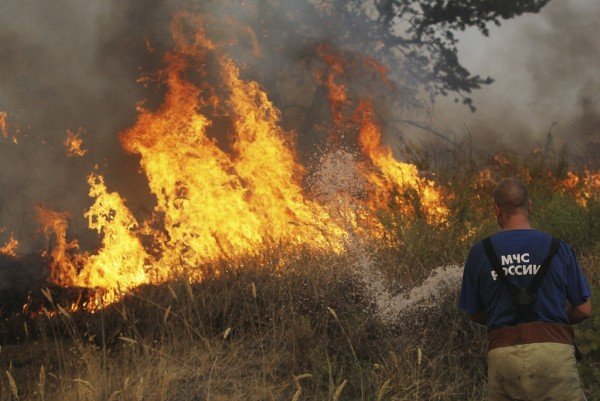Folks out west are biting their nails this summer as the heat and dry conditions are making the whole state a big tinder bundle. But what do you do if you find yourself in the midst of a wildfire while you’re out hiking or camping? Here’s a few tips that could save your life and help you survive a wildfire.
Make a Plan
While it’s always a good idea to study your route thoroughly, it’s also a good idea to have an escape plan in the event of an emergency. Knowing alternate routes, sources of water, fire roads and other resources are vital parts of preparedness. Does the area have cell service? A quick look on the internet may answer a lot of your questions.
RELATED: The Positive Effects of Wildfires
Be Aware
Awareness is always the best tool you have when you’re out in nature. Smoke can carry long distances so it’s important to note the direction it’s coming from, which way the wind is blowing and how strong the smell is. Don’t wait until the area is “smoked in” to make an assessment. Often at the onset of a wildfire, you’ll see a plume of smoke.
Get Information if you can
Technology makes it pretty easy to find out about almost everything. If you have cell service, call 911 immediately to report what you see. Nobody’s going to get mad at you if you make a report. Try and get on the internet and go to local fire resources. Most, if not all, are super current on reports.
Stay calm but act quickly
If you’re out of service range, you’re on your own. Now’s the time to make good rational decisions. If you see smoke or flames, by all means don’t go uphill into the wind to take a better look. Depending on conditions, wildfires can spread incredibly fast. They always burn faster uphill and are pushed along by the wind. Retreat to lower ground in the opposite direction of the wind. Travel slowly, a twisted ankle may be the difference between life and death.
RELATED: Incredible Video Shot Driving Through Wildfire
Get to Low Ground
Low, open ground is the safest place to be if you know you’re in immediate danger. A lake or creek is ideal and so is a boggy meadow. If you have no water, shelter down in a ditch or a depression (dry creek beds are good spots). Clear away as much debris as you can and cover yourself with dirt or sand. Smoke and heat always rise. Hunker down if you have no other choice.
Lose the Synthetic Gear
Wildfires pass over low spots quickly but are still incredibly hot. Plastic and synthetic gear will melt to you like a flaming marshmallow. If you can wet a bandana to put over your face, that will protect your lungs and eyes. Your feet are equally important (you have to walk out) so dig them into the dirt if you can. Keep your face in the dirt where it’s coolest and try to breathe slowly.
Don’t make a Hasty Retreat
After the fire has passed over you (yes, people do survive), know that there will be a lot of “hot spots” along the way out. Chances are that help will be close but you have to make an effort to be seen and avoid burning your feet. Get yourself together and do a make a good assessment of your situation. The fire’s not going to come back over so get yourself out of there safely.
Always be aware of fire restrictions, high fire danger and areas that have a lot of dead standing wood and debris. Be extra aware when the wind is high and be prepared for anything. Wildfires are nothing to mess with so make sure you plan your trip well, especially during a summer like this.








